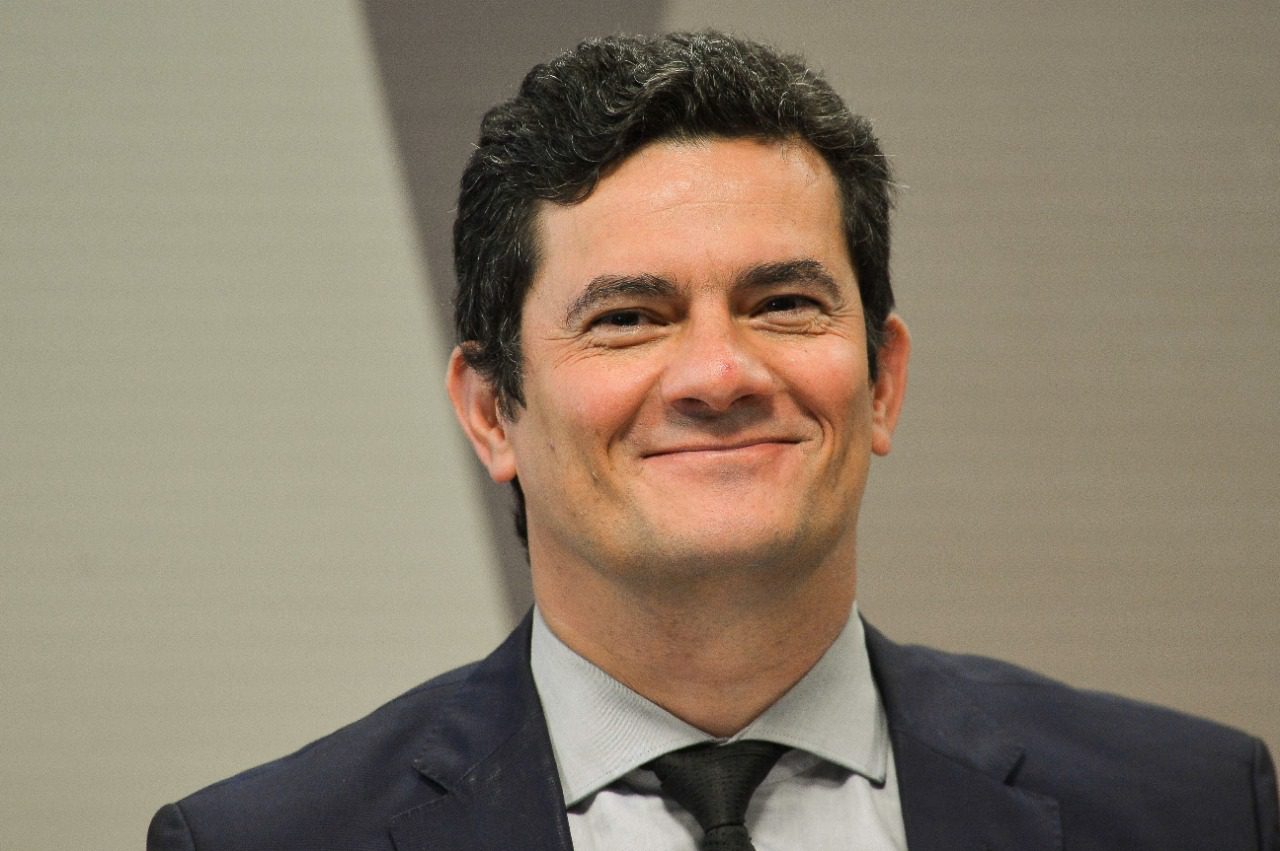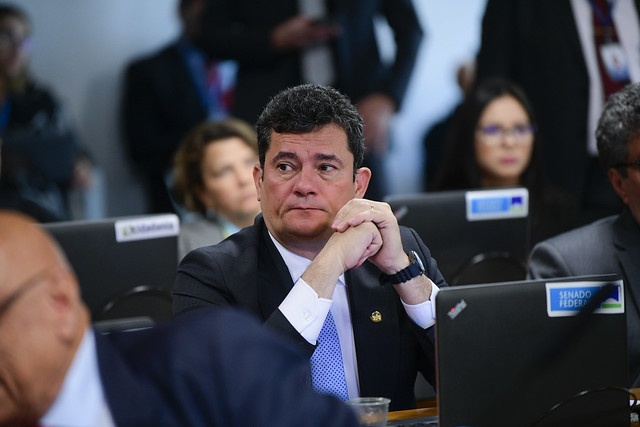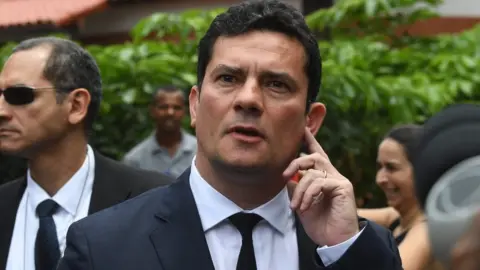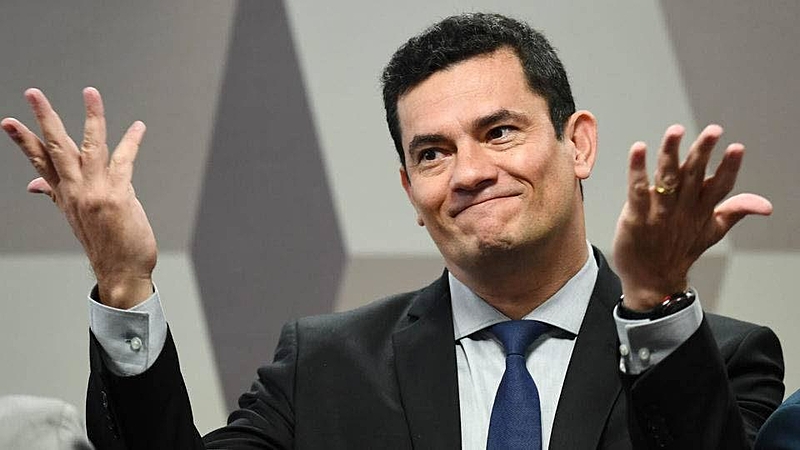Sergio Moro, born on August 1, 1972, in Maringá, Paraná, Brazil, is a prominent figure in the Brazilian legal and political landscape. Best known for his role in the Operation Car Wash (Operação Lava Jato) investigation, Moro has had a significant impact on Brazil’s judiciary and political sphere. This article explores his early life, career trajectory, notable achievements, and the controversies that have surrounded his career.
Sergio Moro Early Life and Education

Sergio Moro was born into a middle-class family. His father, Dalton Áureo Moro, was a geography professor, and his mother, Odete Moro, a teacher. This academic environment fostered a love for education in young Sergio, who excelled in his studies from an early age.
Academic Background
Sergio Moro graduated from the State University of Maringá with a degree in law in 1995. He furthered his education at the Federal University of Paraná, where he earned a Master’s degree and later a Ph.D. in State Law. His academic pursuits included studying abroad at Harvard Law School, where he gained exposure to international legal practices and anti-corruption measures.
Judicial Career
Early Judicial Work
Sergio Moro began his judicial career in 1996, working as a federal judge in Curitiba, Paraná. His early work focused on financial crimes, tax evasion, and money laundering. Moro’s meticulous approach and strong stance against corruption quickly earned him a reputation for integrity and diligence.
Operation Car Wash
Sergio Moro career reached a turning point with his involvement in Operation Car Wash, an extensive investigation into corruption and money laundering involving the state-controlled oil company Petrobras. Launched in 2014, the operation uncovered a vast network of corruption involving top executives at Petrobras, leading politicians, and major construction companies.
Impact and Achievements
Operation Car Wash became one of the largest corruption investigations in Latin American history. Sergio Moro leadership in the investigation led to the prosecution and conviction of numerous high-profile figures, including former Brazilian President Luiz Inácio Lula da Silva. Lula’s conviction on corruption charges in 2017 was a landmark moment, demonstrating Moro’s commitment to justice and his ability to hold even the most powerful individuals accountable.
Moro’s handling of the case earned him national and international acclaim. He was praised for his courage and determination to combat corruption in Brazil, receiving various awards and recognitions for his work. His efforts also brought attention to the systemic issues within Brazil’s political and economic systems, highlighting the need for comprehensive reforms.
Transition to Politics

Minister of Justice and Public Security
In 2018, Sergio Moro made a significant career shift by accepting an invitation from newly elected President Jair Bolsonaro to serve as Brazil’s Minister of Justice and Public Security. This move was seen as a strategic decision by Bolsonaro to bolster his administration’s anti-corruption credentials.
Policies and Initiatives
As Minister, Sergio Moro focused on strengthening anti-corruption laws, enhancing the capabilities of law enforcement agencies, and tackling organized crime. He proposed a series of legislative measures aimed at tightening penalties for corruption and improving the efficiency of the judiciary. Moro also emphasized the importance of protecting whistleblowers and enhancing transparency within the government.
Controversies and Resignation
Moro’s tenure as Minister was not without controversy. His impartiality was called into question, particularly regarding his involvement in the investigation of former President Lula. Critics argued that Moro’s actions were politically motivated and aimed at preventing Lula from running in the 2018 presidential election.
In April 2020, Moro resigned from his ministerial position, citing political interference from President Bolsonaro as the primary reason. Moro accused Bolsonaro of attempting to influence federal police investigations for personal and political gain, a charge that added to the ongoing political turmoil in Brazil. His resignation sparked widespread debate and further polarized opinions about his legacy.
Legacy and Impact
Judicial Reforms
Sergio Moro work in Operation Car Wash and his tenure as Minister of Justice left a lasting impact on Brazil’s legal and political landscape. His efforts led to significant judicial reforms aimed at combating latoto login corruption and increasing transparency. The operation also exposed the deep-rooted corruption within Brazil’s political and corporate sectors, prompting calls for continued vigilance and reform.
Public Perception
Moro remains a polarizing figure in Brazil. To his supporters, he is a hero who bravely took on corruption and sought to restore integrity to Brazilian politics. To his detractors, he is seen as a politically motivated figure whose actions were biased and self-serving. Despite the controversies, there is no denying that Moro has played a pivotal role in shaping Brazil’s contemporary judicial and political environment.
International Recognition
Moro’s work has been recognized internationally, with numerous accolades highlighting his contributions to the fight against corruption. He has been invited to speak at global forums and has been featured in international publications as a symbol of judicial integrity. His work in Operation Car Wash is often cited as a benchmark for anti-corruption efforts worldwide.
Personal Life

Private Life and Interests
Sergio Moro is married to Rosangela Wolff Moro, a successful lawyer and activist. The couple has two children. Despite his high-profile career, Moro has managed to maintain a relatively private personal life, focusing on his family and personal interests outside of work.
Publications and Teaching
Sergio Moro has also contributed to academia through teaching and publications. He has written extensively on topics related to law, corruption, and the judiciary, sharing his insights and experiences with students and legal professionals. His academic contributions further underline his commitment to the rule of law and his desire to foster a deeper understanding of legal principles and anti-corruption measures.
Future Prospects
As of now, Sergio Moro remains an influential figure in Brazil, and there is ongoing speculation about his future in politics. Some supporters hope to see him run for public office again, possibly even the presidency. Regardless of his future endeavors, Moro’s impact on Brazilian society and his role in the country’s ongoing fight against corruption ensure that he will remain a significant figure in Brazil’s history.
Conclusion Sergio Moro
Sergio Moro’s journey from a dedicated federal judge to a central figure in one of the largest corruption investigations in history, and later as Brazil’s Minister of Justice, is a testament to his commitment to the rule of law and justice. His actions have reshaped Brazil’s judiciary, exposed deep-seated corruption, and sparked a national dialogue on transparency and integrity. Despite the controversies and challenges, Moro’s legacy as a key player in Brazil’s fight against corruption will endure, influencing future generations and continuing to shape the country’s legal and political landscape.
Read More Article About “Churros con Chocolate: A Delightful Spanish Treat“
